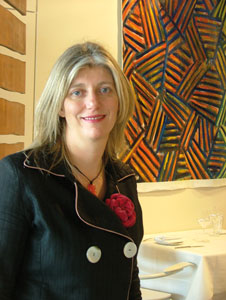How to generate referral business in a tight economy
According to the country’s biggest business referral organisation the current economic climate means that the ‘old days’ of casual business networking have probably passed their ‘use by date’.
|
This year celebrating its 10th anniversary, BNI New Zealand has experienced phenomenal growth, regularly claiming international awards for ‘market penetration’ and ‘highest average number of members’ per networking group (chapter) – no mean feat when you consider that BNI International is more than 25 years old and active in more than 40 countries. NZBusiness spoke to NZB: What do you mean by casual networking, and why has it changed? GS: Generating new business or growing your network by attending wine and cheese type functions where you make casual contact with people for the first time has always been hard work. People cluster in groups with people they know and when you make an ‘approach’ to someone – no matter how good you are at it – that person invariably knows you’re ‘chatting’ them up or feeling them out with an ulterior motive. Most people are instinctively cautious, but formal and polite. At the moment, I would suggest we’re working a lot harder to generate the same amount of money that we were doing this time last year. People are pressed for time. Redundancies are increasing. Insolvencies are up – trust is an issue. It’s difficult enough getting people to part with their money, so a total stranger is facing an uphill battle. There’s also a risk for the company that’s getting the business in this scenario. If you do manage to enter a business relationship with someone you’ve just met, can you be sure you’re going to get paid on time, or even if you’re going to get paid? Essentially the business environment has changed, and so has the way people think and behave. Therefore, business networking practices have to change too. NZB: Does that mean that business networking is now a complete waste of time? GS: Not at all. Getting referrals remains the most effective form of marketing for return on investment. In fact, the current ‘trust’-based environment is a fertile ground for referral marketing. When people are being cautious with their money and wondering who to trust, their first instinct is usually to ask people they know to recommend someone. When you make an approach on the basis of being referred, you find that the sale has virtually been done for you – the time and money investment in the sales process is minimal, compared to going in cold. However, the way we go about business networking must change. In the past it was enough to be able to hold a conversation; to know what questions to ask; to know how to select your potential network partners; to smile in social situations. In the past that type of interaction could have led to business quite quickly, but not anymore. Those basic skills remain important, but they’re just scratching the surface. Today, networking is all about building strong relationships – done properly, it takes time and effort. It’s goodbye ‘one night stands’. NZB: You talk about building relationships, but how do you go about building a business relationship with someone – wouldn’t the regular marketing tactics apply? For example, sending them a note after the networker, copying them in on your newsletter, making a sales appointment? GS: By all means, do those things. But I would suggest that they are not going to be as effective as they may have been previously. Going straight from first contact to sales pitch is likely to be viewed with less enthusiasm by the person on the other end. Their first thought may be: “We’re cutting costs, so I’m not in the market for any new products or services. It’s steady as she goes at the moment”.
|
And that is precisely the problem – trying to sell to your network meets with minimal success and limits your opportunities. You have to work at establishing a relationship so that the person in effect becomes a ‘referral source’ rather than the primary source of business. You develop a trusting, mutually beneficial relationship with that person so that they’re happy to recommend you when they recognise opportunities for you. Relationships are now the bedrock of business. Companies which took the time to invest in relationships are now reaping the reward. Companies which do not have a relationship with potential referral sources will have to put in a concerted effort to build those relationships, and there’s no quick fix. NZB: How do you build a strong business relationship? GS: Visibility and reciprocity. The philosophy of BNI is ‘Givers Gain’. We educate our members to ‘give’ first. We say that networking is like farming, not hunting. The relationship has to be cultivated before it will yield results. When you have identified somebody you believe will make a good source of business referrals for you, start by finding referrals for them first. If you help them, they will want to help you. The other important activity is ‘visibility’. I have in the past asked a room full of people how many of them have had a long distance relationship. At least half put their hands up. I then ask them how many of those long distance relationships worked. If ten percent put their hands up, it’s a lot. You cannot have a relationship in absentia. Absence does not make the heart grow fonder. If you want a business relationship with someone, you have to be present in their lives. We have our members meet every week, and regular attendance is expected (members can send a substitute and are allowed three absences, without a substitute, in a six month period). It may sound like a tough regime, but when you get in to the habit of meeting with like-minded people you get on well with, and when they give you referrals and you return the favour, and when you help each other with advice and mentoring – you have a real business relationship. It’s like any relationship really – you get out, what you put in. BNI New Zealand has more than 2300 members in 105 chapters throughout the country. Most chapters meet for breakfast, a few during lunch time, and follow a structured programme aimed to build strong relationships and build referral business. Only one person from any one trade, industry or profession can join a chapter and regular attendance is mandatory. For more information visit www.bni.co.nz
|






